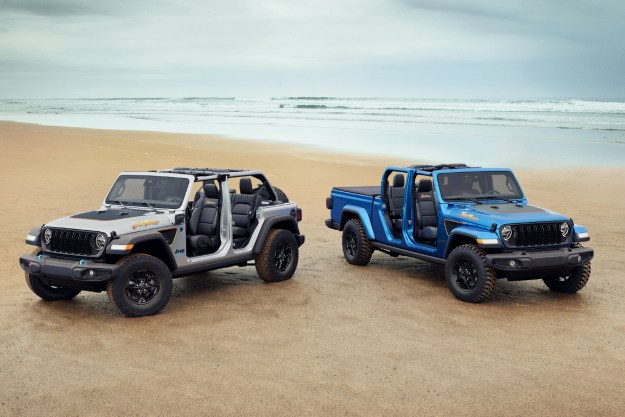We’ve come a long, long way since the Prius first debuted in 1997. Toyota first legitimized, then popularized the idea of the mass-produced electric car. Then, Elon Musk actually made them fun to drive. But we’re in a whole new era of electric vehicles right now, one where they’re shattering the track and 0-60 times of their gas-powered counterparts.
From everyday drivers to class-redefining pickups to high-concept Italian exotics, here are five of the world’s fastest EVs by type. And while EVs certainly impress, we’ve also put together a list of the overall fastest cars in the world.
Faraday Future FF91
Fastest electric sport crossover vehicle
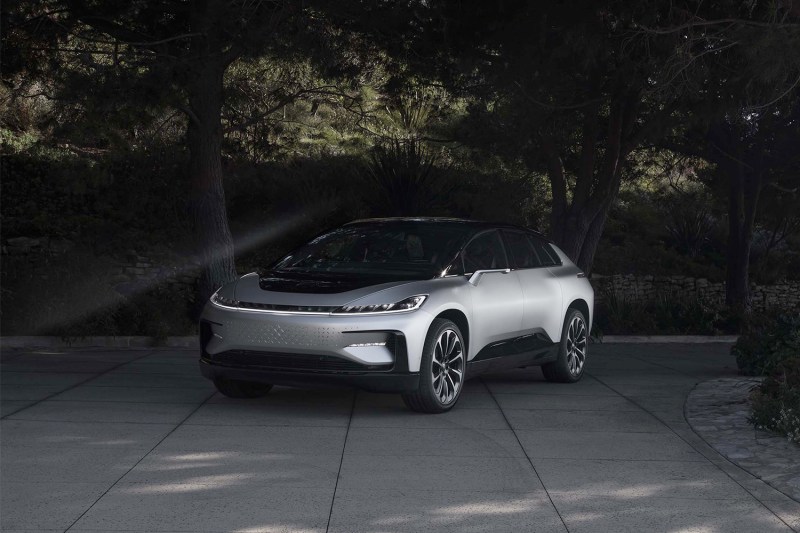
For years, California-based Faraday Future has been marred by production delays and accusations of shady business dealings. However, the company announced last year that it’s finally moving forward with the release of its FF91 luxury sport crossover. Production is scheduled to start at the end of March, with the first deliveries expected sometime in April 2023. While the official stats have been something of a mystery, we expect it to settle north of 1,050 horsepower, capable of pushing the FF91 to 60 in around 2.4 seconds. Four-wheel steering and torque vectoring promise to make it more agile on the road. With an estimated range of almost 400 miles on a single charge and a decent amount of trunk space to boot, it could be the best EV to combine speed, range, and practicality.
Tesla Roadster
Fastest mass-produced electric sports car
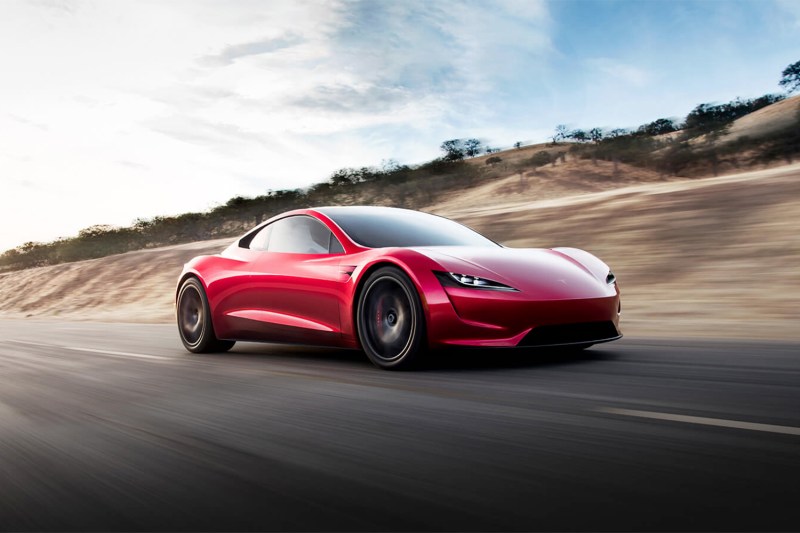
There’s no denying Tesla revolutionized, then set the standard for, the concept of the modern electric vehicle. The now iconic automaker debuted the ground-breaking Tesla Roadster in 2008, and it was a beauty inside and out. Today, the numbers are every bit as staggering as we’ve come to expect from Tesla: 1.9 seconds to travel 0-60 miles per hour and a 0-100 time of just 4.2 seconds.
In pre-production testing, the next-gen Roadster can reportedly tackle the quarter-mile in a blistering 8.8 seconds, and Elon Musk promises a top speed of more than 250 miles per hour. You read that correctly. These numbers place it squarely in McLaren P1 territory for a fraction of the cost. What’s more: It seats four technically, features a removable glass roof that tucks neatly into the trunk, and will boast a range of 620 miles courtesy of a 200kWh battery pack.
Rivian R1T
Fastest electric sport pickup
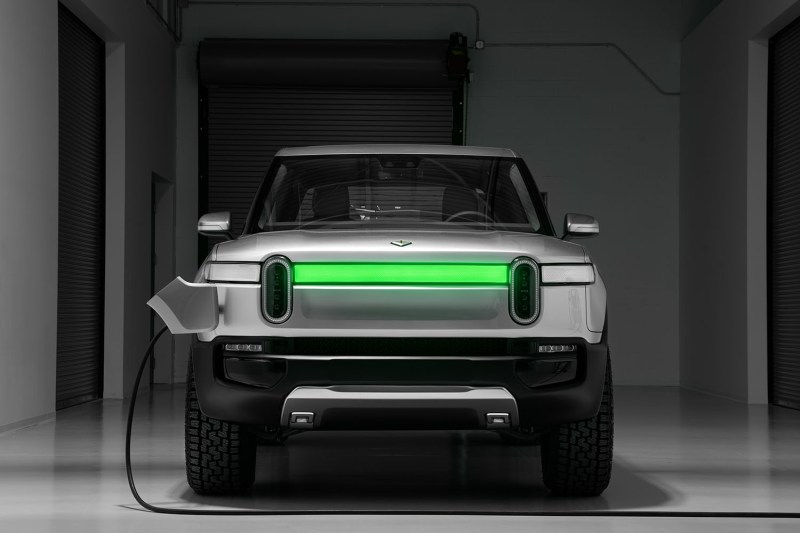
A legit electric pickup had been a long time coming, and newcomer Rivian finally delivered the all-new R1T when the first one rolled off the assembly line in September 2021. Based on a now-standard electric skateboard chassis, the latest-generation Rivian R1T offers everything pickup owners want — practicality, durability, and a boatload of torque — with Porsche-like speed and acceleration. The flagship package delivers a whopping 835 horsepower and 908 lb-ft of torque via four individual electric motors. That’s enough to push this beefy pickup to 60 from a standstill in just three seconds, while it’ll top 100 miles per hour in less than eight. It’s also capable of towing up to 11,000 pounds and 1,600 pounds in the truck’s bed. With a maximum range of 400 miles, it could be not only one of the fastest but one of the most practical pickups on the planet.
Aspark Owl
Fastest electric street-legal race car
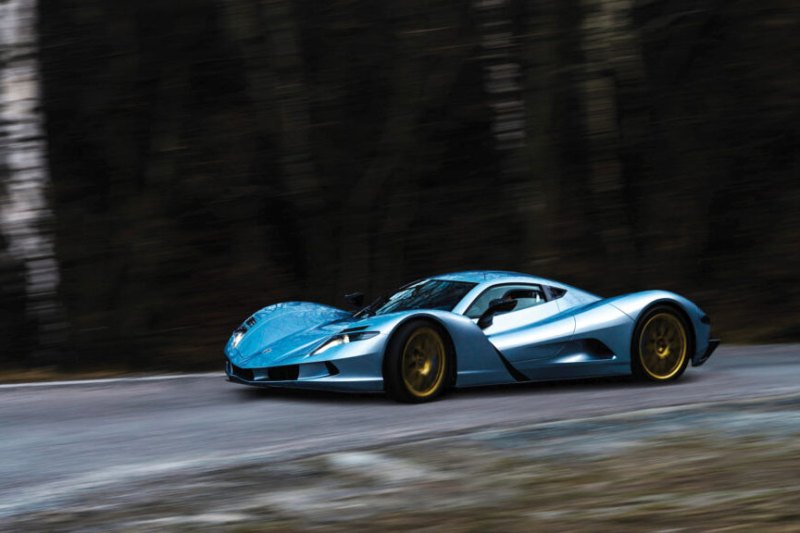
There’s a lot of chest-puffing in the automotive world and, more often than not, it’s just that. For years, the Aspark Owl has been promising record-breaking numbers at the Nurburgring, besting the current EV champ, the 1,341-horsepower, track-only Nio EP9. While the Japanese-made hypercar has yet to run the legendary proofing track, there’s good evidence to support the automaker’s claim. This video shows the Owl blasting from a standstill to 60 miles per hour in an absurd 1.9 seconds.
To be clear, this is faster than a Bugatti Chiron. These stratospheric numbers are thanks to a pure carbon body with a carbon fiber monocoque all weighing under 1,900 pounds. The Owl’s quad motors push 2,012 horsepower and a yet-to-be-announced amount of torque. The best part? It will be street-legal — all for the low, low price of just $4 million (including a non-refundable $500,000 deposit).
Automobili Pininfarina Battista
Fastest electric hypercar
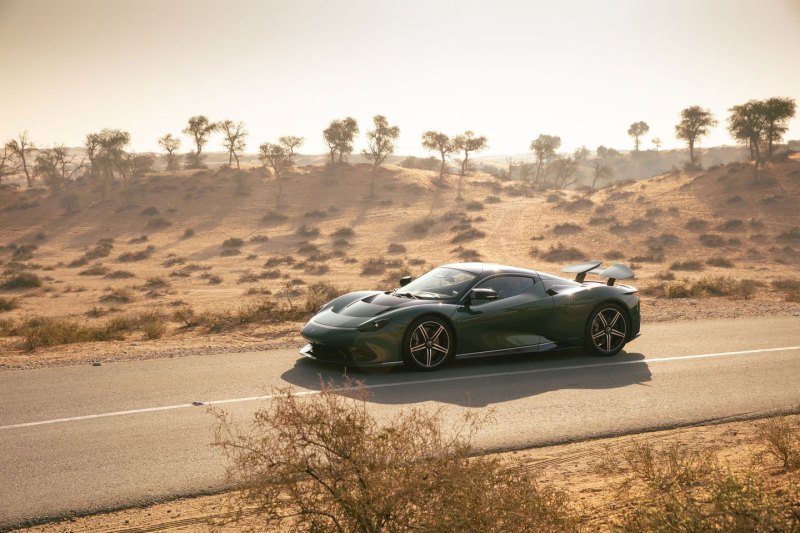
Not long ago, sub-two-second 0-60 times were thought to be almost physics-defying, the stuff of hypercar fantasy. But cars like the Aspark Owl are up-ending what we think we know about the laws of physics. In 2020, Automobili Pininfarina, the famed Italian automaker’s EV-focused subsidiary, announced the upcoming debut of its Battista hypercar. A few years on, it’s just about ready for showtime. By the numbers, it has all the makings of a record-shattering hypercar: 1,900 horsepower and 1,696 pound-feet of torque promise to propel the Battista from 0-62 miles-per-hour in just 1.86 seconds with a top speed of almost 220 miles per hour. Only 150 will be sold but at less than $2.5 million, it’s practically a bargain compared to its hypercar competition.
Editors' Recommendations
- The 9 fastest cars in the world right now
- Report: Only one-third of car dealerships have an EV available for purchase right now
